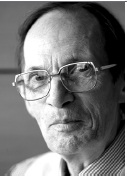Today is the 58th anniversary of the end of World-War Two. There will be a gathering at the Budokan—with the Prime Minister and the Emperor in attendance—to mark the end of a war that Japan lost. It is a solemn moment for those families—Chinese, American, Japanese, British, Korean and many others—who lost their dear ones, whether as soldiers on active duty or as civilians.
In this connection, I would like to mention that no one appears guiltless, as regards the Pacific War. Not my fellow Brits, who erupted into mainland China in the 1840s, as avidly as the Japanese conquerors a century later. Not President Franklin Roosevelt, whose advisers must have told him that cutting off Japan’s oil would lead to war.
And not the Japanese commanders who issued the order to attack Pearl Harbor.
That assault was a case of “the glass-house attacking the quarry,” according to an American friend, who served in the U.S. Navy for six and a half years and experienced combat in many theaters. The destroyer on which he served came under kamikaze attack many times. This friend, Al Cullison, a fellow correspondent, was one of those stone-throwing naval men who wasted the glass-house.
Having said that, I have to admire, with all my heart, the dignity of those Japanese whom I encountered over the last 40 years. Not one of my Japanese friends ever referred even once to those they lost. There was not one mention in four decades, of those fathers, sons and brothers who did not return. Not a hint, not a breath of a mention. Chinmokuis the word for it in Japanese. “Silence.” The one person who broke this silence in all this time is a relative of mine. She is my mother-in-law—the lady I sometimes referred to in these columns as my news assistant. “Fumi-chan”—as Cork used to call her—hides nothing from me.
She remembers her elder brother, who was lost at sea. She also recalls her boyfriend, who was “snatched away” by the Japanese military, the moment he graduated from Keio. For her, they are never far away. They live in Yasukuni Shrine in the heart of Tokyo. They have not gone any place. They are right there, in the shrine, along with many millions of other Japanese.
Once, not long ago, I had the stalls and the privilege of accompanying her to the shrine. It was a busy day. The place teemed with visitors. We approached the main shrine, tossed in a coin or two… As luck would have it, I had visited the shrine just a few days earlier with a Japanese friend—an older person, someone I have known for a long time. So this was my second visit in a few days—actually, to walk under the cherry blossoms last April.The two visits were equally memorable. I wouldn’t have missed either. Not the sight of Fumi, bowing her head. And not the experience of being with my Japanese friend and seeing him break into laughter and guffawing as, all of a sudden, the loudspeakers in the shrine suddenly blared out a U.S. classic of the 1950s. It was to the gravelly voice of Louis Armstrong that we made the rounds of the goldfish the stalls and the fried squid stalls. This was indeed a celebration.
“Here’s all the evidence the Chinese need,” chortled my friend. “Here is the proof—of course at the Yasukuni Shrine—of the revival of Japanese militarism.
“Now all the world knows, the secret is out!”
He waved his hands in the air and pointed up towards the loudspeakers. They went on blaring out the voice of Satchmo—nothing else would suit this festive occasion.
The moral of the story is that Japan and America became friends. And, as the late Mike Mansfield used to say, this U.S. Japan relationship is now “the most important in the world, bar none.” Mike said that many times at the Bar None Ranch—the U.S. Embassy—and he had a point.
During the last 30 years the Japanese, far more than any other nation, have covered the gaping hole in U.S. finance—the payments deficit. Year in, year out, these are the people who showed up at the auctions of U.S. government bonds. The money starts out from here, it is that simple.
Without the Japanese the U.S., and the rest of us along with America, would have fallen flat on our faces, honestly. This is where it’s all at, I assure you. The Japanese scrimp and save—and the Anglo-Saxons take out second mortgages. The virtue of the former covers the profligate conduct of the latter.
Could anyone possibly have predicted this outcome on Aug. 15, 1945, with this city lying in ruins? You’ve got to take off your hat to these people. I do.









